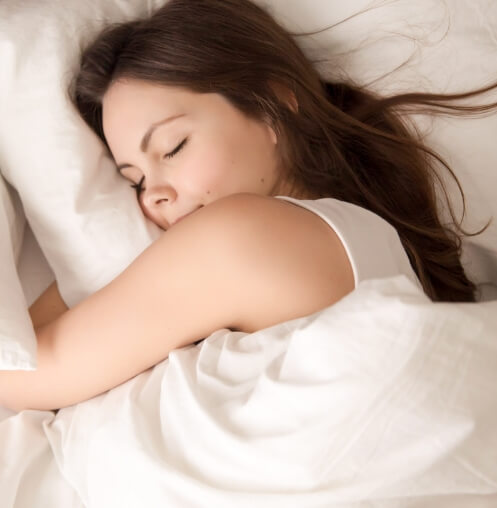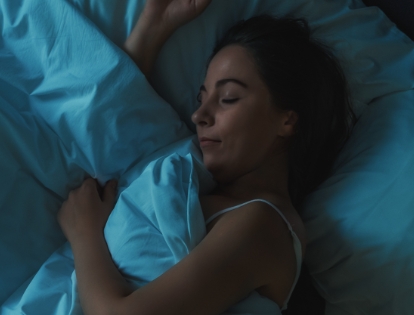
The Good
Night Guide
Your doctor-designed
roadmap to restful sleep
Putting restful sleep in reach
Ask any doctor how to improve your health, and they’ll point to five basic strategies: Eat well; exercise; minimize stress; avoid tobacco and get more sleep. When it comes to that last one—sleep—it’s hard to overstate the importance. But for too many of us, regular, restful slumber feels out of reach; almost one in three American adults say they don’t get the recommended seven hours12. The impact on their health can be severe. If you’re among those who have trouble sleeping, you know how agonizing it can be: You lie in bed, but sleep doesn’t come. Or you snatch a few hours only to wake feeling drained. This guide aims to change that by explaining a little about how sleep works and drawing on peer-reviewed science to give you practical pointers for bringing those precious Z’s back in reach.
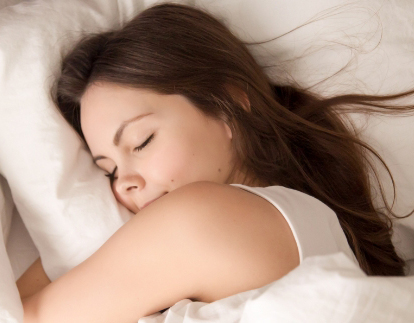
Sleep: a full-body tune-up
A good night’s rest does more than improve your energy. Those hours unconscious give your body a chance to recalibrate a host of systems that are vital to your day-to-day functioning. It’s like a free nightly tune-up for your body and mind—skip it (or cut it short) and it won’t be long before you start to misfire. This system-wide impact means sleep’s benefits are numerous, varied—and in some cases surprising:
- Sleep can help you manage your weight3 by regulating hormones that affect appetite4, cravings5 and metabolism6;
- It supports your heart health7 by helping you manage your blood pressure and some natural chemicals linked to inflammation;
- It can improve your mood8, by helping you manage the psychological symptoms associated with sleep deprivation;
- It can support your memory9 by enabling the transfer of memories to your brain cortex for permanent storage (a process that makes room for new ones);
- It can make you feel smarter10 by improving your ability to concentrate and problem-solve;
- It can help protect you from illness11 by enabling your immune system to build the tools it needs to fight off infection.
And that’s just to name a few.
12 steps to better sleep
When it comes to your health, it’s hard to overstate the importance of sleep. A good night’s rest can boost your memory1, strengthen your immune system2, support your heart health3, improve your mood4—even help manage your weight5. But for too many of us, regular, restful slumber feels out of reach. This doctor-designed guide aims to change that with a few practical pointers for catching those precious Z’s.

Exercise
Find time during the day for regular, moderate exercise—a walk, a jog, a bike ride or some other physical activity—and to do it well ahead of bedtime. You should find you get to sleep faster, stay asleep longer and have more energy in your waking hours6,7.

Get outside when the sun’s up
Get your body clock back on schedule by exposing yourself to bright light during the day—either by going outside or, if that’s not possible, investing in a bright artificial light designed for that purpose. It can make a big difference at bedtime8,9.

Manage screen time
The blueish light emitted by screens tends to trigger your body’s wake cycle, meaning it gets in the way of sleep when you absorb it too close to bedtime10. To get your body ready for rest, turn off your phone, your TV and your other screens at least two hours before bed.

Optimize your bedroom
Keep your bedroom dark, quiet11 and free from disruptive electronic devices. And be sure to select a temperature that feels right for you. A room at the wrong temperature—especially one that’s too warm12—can get in the way of good rest.

Stick to a schedule
Good-quality sleep isn’t just about duration; it’s also about regularity13. To improve your sleep, try to get to bed the same time every night and up at the same time every morning—including weekends. Do this for long enough, and you may find you no longer need an alarm.

Cut the caffeine early
Caffeine can have a significant impact on your system for as much as six hours after you consume it14. To ensure you get a good night’s sleep, avoid drinking tea, coffee and other caffeinated beverages after about 4pm.

Limit alcohol
Even small amounts of alcohol can interfere with natural sleep hormones15 and trigger symptoms like snoring, sleep apnea and sleep disruption16. To prevent this, keep your alcohol consumption moderate, and try not to drink close to bedtime.
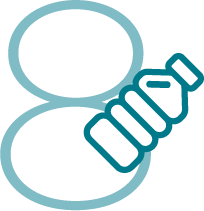
Curb water in the evening
It’s important to stay hydrated during the day, but drinking water too late in the evening can disrupt your sleep by forcing you to get up to urinate17. To avoid this, cut down your liquids in the last couple of hours before bed.
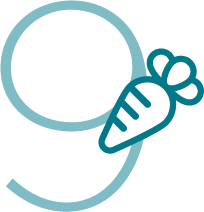
Eat early, eat well
Aim to finish your dinner at least three hours before bed—and keep late-night snacking to a minimum. If you really need to eat near bedtime, go for something small, low-sugar and nutrient-dense18 like some plain yogurt, a handful of berries or a few nuts.
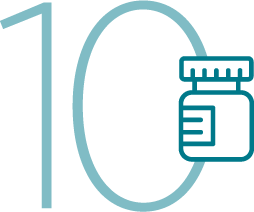
Check your medications
Certain types of drugs, including antihistamines, corticosteroids, antihypertensives and anti- depressants19 can make falling asleep and staying asleep difficult. Check the info that comes with your medications to be sure sleep disruption isn’t a side effect. If it is, talk with your doctor or pharmacist about alternatives.
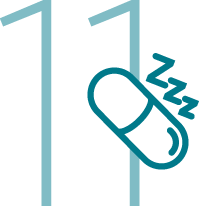
Avoid sleeping pills
Many prescription and over-the-counter sleep aids contain antihistamines that can cause you to wake in the night. Worse, long-term, regular use of sleep aids can contribute to cognitive decline. If you feel a pill is a must, consider melatonin20—a sleep hormone you produce naturally in your body. In some countries, it requires a prescription, so you may need to talk with your doctor.
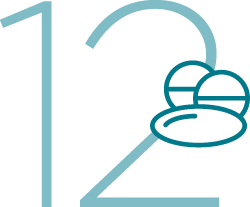
Be smart with your supplements
The negative impact of some medications can be heightened when they interact with certain supplements, especially if those supplements contain caffeine. Avoid this hazard by checking with your doctor or by taking the Persona Assessment.
Guide to Sound Slumber
You can also look into sleep supplement regimens built around natural ingredients. Persona’s multi-step Sound Slumber program is a great example. It harnesses the natural benefits of melatonin and Herbal Rest—a blend of magnesium citrate, L-theanine and hops flower extract—to help support your sleep over time:

Orders 1–3:
3mg Melatonin + Herbal Rest
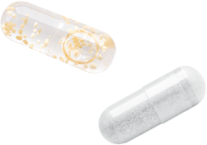

Orders 4:
500mcg Melatonin + Herbal Rest
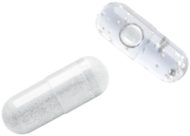

Orders 5:
Herbal Rest
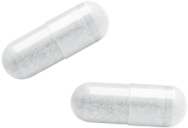
If you don’t want to take melatonin, or if you live in a country where it’s only available by prescription, you can try Persona’s plant-based sleep formula, made from valerian, passionflower and lavender.
Learn moreAbout Persona
With personalized supplements and one-on-one expert advice, Persona provides a convenient, long-term nutrition solution tailored precisely to your needs.
Take Persona’s FREE assessment
Take the assessment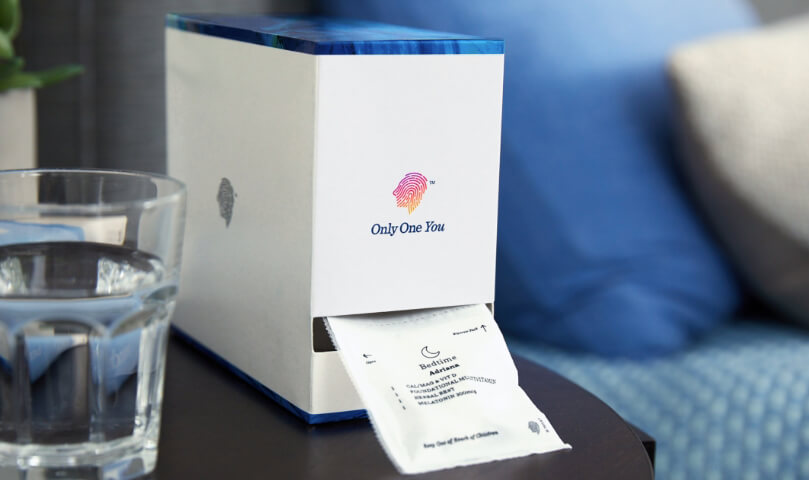
Our Medical Advisory Board

Michael Roizen, MD
Chair

Tamara Bernadot
Chief Nutrition Officer

Lou Malinow, MD

Harry Oken, MD

Carielle Nikkel, MS, RDN
VP of Nutrition Support

Barry Lance, MD

Elizabeth Somer, RD, MA

Robin West, MD

Philip Schauer, MD
References:
- 1 cdc.gov/sleep/data_statistics.html
- 2 Watson NF, Badr MS, Belenky G, et al. Recommended amount of sleep for a healthy adult: a joint consensus statement of the American Academy of Sleep Medicine and Sleep Research Society. Sleep. 2015;38(6):843–844.
- 3 Taheri S. The link between short sleep duration and obesity: We should recommend more sleep to prevent obesity. Arch Dis Child 2006;91:881–884.
- 4 xaikat FM, Makarem N, Liao M, St-Onge MP, Aggarwal B. Measures of Poor Sleep Quality Are Associated With Higher Energy Intake and Poor Diet Quality in a Diverse Sample of Women From the Go Red for Women Strategically Focused Research Network. J Am Heart Assoc. 2020 Feb 18;9(4):e014587.
- 5 Hanlon EC, Tasali E, Leproult R, Stuhr KL, Doncheck E, de Wit H, Hillard CJ, Van Cauter E. Sleep Restriction Enhances the Daily Rhythm of Circulating Levels of Endocannabinoid 2-Arachidonoylglycerol. Sleep. 2016 Mar 1;39(3):653-64.
- 6 Spiegel K, Leproult R, Van Cauter E. Impact of sleep debt on metabolic and endocrine function. Lancet. 1999;354(9188):1435-1439. doi:10.1016/S0140-6736(99)01376-8
- 7 He Q, Zhang P, Li G, Dai H, Shi J. The association between insomnia symptoms and risk of cardio-cerebral vascular events: A meta-analysis of prospective cohort studies. European Journal of Preventive Cardiology. 2017;24(10):1071-1082. doi:10.1177/2047487317702043
- 8 Hayley AC, Williams LJ, Venugopal K, Kennedy GA, Berk M, Pasco JA. The relationships between insomnia, sleep apnoea and depression: findings from the American National Health and Nutrition Examination Survey, 2005-2008. Aust N Z J Psychiatry. 2015;49(2):156-170. doi:10.1177/0004867414546700
- 9 Chai, Y., Fang, Z., Yang, F.N. et al. Two nights of recovery sleep restores hippocampal connectivity but not episodic memory after total sleep deprivation. Sci Rep 10, 8774 (2020). https://doi.org/10.1038/s41598-020-65086-x
- 10 Walker MP, Liston C, Hobson JA, Stickgold R. Cognitive flexibility across the sleep-wake cycle: REM-sleep enhancement of anagram problem solving. Brain Res Cogn Brain Res. 2002;14(3):317-324. doi:10.1016/s0926-6410(02)00134-9
- 11 Irwin M, McClintick J, Costlow C, Fortner M, White J, Gillin JC. Partial night sleep deprivation reduces natural killer and cellular immune responses in humans. FASEB J. 1996;10(5):643-653. doi:10.1096/fasebj.10.5.8621064
- 12 Reid KJ, Baron KG, Lu B, Naylor E, Wolfe L, Zee PC. Aerobic exercise improves self-reported sleep and quality of life in older adults with insomnia. Sleep Med. 2010;11(9):934-940. doi:10.1016/j.sleep.2010.04.014
- 13 King AC, Oman RF, Brassington GS, Bliwise DL, Haskell WL. Moderate-intensity exercise and self-rated quality of sleep in older adults. A randomized controlled trial. JAMA. 1997;277(1):32-37.
- 14 Campbell SS, Dawson D, Anderson MW. Alleviation of sleep maintenance insomnia with timed exposure to bright light. J Am Geriatr Soc. 1993;41(8):829-836. doi:10.1111/j.1532-5415.1993.tb06179.x
- 15 Fetveit A, Skjerve A, Bjorvatn B. Bright light treatment improves sleep in institutionalised elderly—an open trial. Int J Geriatr Psychiatry. 2003;18(6):520-526. doi:10.1002/gps.852
- 16 Chinoy ED, Duffy JF, Czeisler CA. Unrestricted evening use of light-emitting tablet computers delays self-selected bedtime and disrupts circadian timing and alertness. Physiol Rep. 2018;6(10):e13692. doi:10.14814/phy2.13692
- 17 Lee KA, Gay CL. Can modifications to the bedroom environment improve the sleep of new parents? Two randomized controlled trials. Res Nurs Health. 2011;34(1):7-19. doi:10.1002/nur.20413
- 18 Jacobson BH, Boolani A, Smith DB. Changes in back pain, sleep quality, and perceived stress after introduction of new bedding systems. J Chiropr Med. 2009;8(1):1-8. doi:10.1016/j.jcm.2008.09.002
- 19 Libert JP, Bach V, Johnson LC, Ehrhart J, Wittersheim G, Keller D. Relative and combined effects of heat and noise exposure on sleep in humans. Sleep. 1991;14(1):24-31. doi:10.1093/sleep/14.1.24
- 20 Giannotti F, Cortesi F, Sebastiani T, Ottaviano S. Circadian preference, sleep and daytime behaviour in adolescence. J Sleep Res. 2002;11(3):191-199. doi:10.1046/j.1365-2869.2002.00302.x
- 21 Drake C, Roehrs T, Shambroom J, Roth T. Caffeine effects on sleep taken 0, 3, or 6 hours before going to bed. J Clin Sleep Med. 2013;9(11):1195-1200. Published 2013 Nov 15. doi:10.5664/jcsm.3170
- 22 Ekman AC, Vakkuri O, Ekman M, Leppäluoto J, Ruokonen A, Knip M. Ethanol decreases nocturnal plasma levels of thyrotropin and growth hormone but not those of thyroid hormones or prolactin in man. J Clin Endocrinol Metab. 1996;81(7):2627-2632. doi:10.1210/jcem.81.7.8675588
- 23 Taasan VC, Block AJ, Boysen PG, Wynne JW. Alcohol increases sleep apnea and oxygen desaturation in asymptomatic men. Am J Med. 1981;71(2):240-245. doi:10.1016/0002-9343(81)90124-8
- 24 Asplund R. Nocturia, nocturnal polyuria, and sleep quality in the elderly. J Psychosom Res. 2004;56(5):517-525. doi:10.1016/j.jpsychores.2004.04.003
- 25 Jalilolghadr S, Afaghi A, O’Connor H, Chow CM. Effect of low and high glycaemic index drink on sleep pattern in children. J Pak Med Assoc. 2011;61(6):533-536.
- 26 Beccuti G, Monagheddu C, Evangelista A, et al. Timing of food intake: Sounding the alarm about metabolic impairments? A systematic review. Pharmacol Res. 2017;125(Pt B):132-141. doi:10.1016/j.phrs.2017.09.005
- 27 Kinsey AW, Ormsbee MJ. The health impact of nighttime eating: old and new perspectives. Nutrients. 2015;7(4):2648-2662. Published 2015 Apr 9. doi:10.3390/nu7042648
- 28 sleepfoundation.org/articles/how-medications-may-affect-sleep
- 29 Lemoine P, Nir T, Laudon M, Zisapel N. Prolonged-release melatonin improves sleep quality and morning alertness in insomnia patients aged 55 years and older and has no withdrawal effects. J Sleep Res. 2007;16(4):372-380. doi:10.1111/j.1365-2869.2007.00613.x
